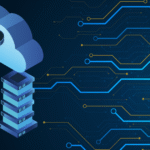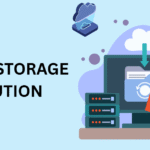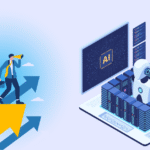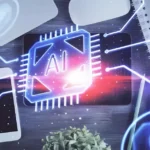Just think of having an AI assistant that did not require any rest, could function simultaneously doing several tasks with ease. This is no longer an episode of science fiction, as it’s in the realm now for AI agents. They are smart computer programs that are transforming the way we work, shop, learn, or just live our everyday lives.
If you ever wanted to know what makes that agent special compared to your average computer programs, or are already curious how they are helping millions of people worldwide, read on. This post will take you all the way to becoming proficient in AI agents: from fundamentals to real-life examples you can straight use.
Introduction: But what IS an AI Agent?
In general, an AI agent is a program that can “think,” learn and act on its own to complete tasks. Because they need to make observations about their environment just like humans do, the actions of AI agents cannot be modeled with traditional software that follows strict rules.
Kind of like comparing a remote-controlled car with an autonomous one. You can tell the remote controlled car to move. However, things like traffic lights are well within a self-driving car’s realm and the car can either avoid or plan alternative routes without human input.
Essential Features
Key differentiators of AI agents – possess some unique characteristics that distinguish them from normal programs:
- Autonomy: They are capable of working independently without human oversight or assistance
- Reactivity: AI systems can perceive the environment and make intelligent reactions to changes that occur
- Proactivity: By having even more intricately defined objectives, these agents will take their own initiative in predicting opportunities
- Social Ability: The capability of conversing with humans and fellow artificial creatures
- Learning Capability: These AI systems obtain goals and learn over time to improve performance
Types of AI Agents
As can be expected, not all Ai agents are equal. They can be of many types and each prototype is designed for different use-case scenarios and complexity levels.
Simple Reflex Agents
These are some of the most basic agents. They follow simple “if-then” rules:
- If too hot, air conditioner on
- Respond to a “hello” with an equally meaningful greeting
- If a website visitor appears to be confused, help them out
Examples in Daily Life:
- Temperature gauging smart thermostats
- Frequently Asked Question chatbots
- Spam filters in your email
Model-Based Reflex Agents
These agents are basically smarter since they monitor what goes around them. They have a world model inside.
Real-World Applications:
- Traffic prediction apps
- Cameras with face recognition technology
- Predictive smart home systems
Goal-Based Agents
Agents have particular objectives in those scenarios, these AI agents just go after them. They can plan many steps to get there.
Common Uses:
- Personal finance apps to save money
- Smart wearables which track your fitness trends and guide you to stay healthy
- Tools for project management and workflow optimization
Utility-Based Agents
The most advanced option, where agents could evaluate different possibilities according to various winning factors and opt for the best one.
Advanced Applications:
- Algorithms that balance risk and profits for stock trading
- Personalized mood-based recommendations
- Traffic systems for intelligent cities
Going Deeper into AI Agents: A Simplified Technical Explanation
A round of see, think, do – that is what goes on behind any agent. Let me simplify how this process works!
The Perception Phase
Step 1: The AI agent acquires data from its environment via multiple “senses,” including:
- Text from dialogue or documents
- Cameras or images as visual data
- Audio signals from microphones
- Temperature sensing devices, or motion and pressure data readings
The Processing Phase
The agent then uses a number of different methods on this information as follows:
- Identification: Pattern recognition, i.e., recognizing familiar situations or objects
- Data Analysis: Discovery and understanding of trends and relationships in information
- Decision Making: Selecting a value from some of the alternatives
- Planning: Organizing steps to achieve goals
The Action Phase
At last, the agent will move according to the thinking that it did:
- Sending messages or notifications
- Making purchases or bookings
- Controlling smart devices
- Generating reports or recommendations
Real-World Applications
You may be surprised to realize how many AI agents you have daily use of them. Here are some common examples:
Virtual Assistants
| Assistant | Company | Key Features |
| Siri | Apple | Voice commands, device control, smart suggestions |
| Alexa | Amazon | Home automation, shopping and entertainment |
| Google Assistant | Search integration, calendar management and travel planning | |
| Cortana | Microsoft | Office integration productivity features |
E-commerce and Shopping
- Amazon’s Recommendations: “Customers who bought this also bought” feature uses agents that comb through your data instead of relying on fuzzy rules
- Price Comparison Bots: They simply scour the web comparing prices on products you want from multiple sites for the top deals
- Inventory Management: AI agents predict which items will be in demand and when to restock them on the store shelves
Social Media and Entertainment
- Your Facebook, Instagram or TikTok feed—the infinite scrolling mega malls of our digital lives, controlled by AI agents making sure we keep consuming more
- Streaming recommendations as well, only powered by AI agents that suggest what other movies, shows or music you should watch based on your viewing history
Transportation and Navigation
- Route Optimization: In real time these AI agents analyze traffic and suggest shortest paths that are used by facilities like Google Maps and Waze for route optimization
- Ride-Sharing: Apps like Uber and Lyft again utilize AI agents to match drivers with riders, in addition to minimizing waiting times
The Technology Behind AI Agents
You don’t have to be a programmer to gain value from an AI agent, but understanding a bit of how they work will allow you to make better decisions about what ones might be appropriate.
Machine Learning Foundations
Many AI agents use machine learning, meaning that they can get better over time:
Supervised Learning: The agent learns from examples with the right answers
- Spam detection—learning from spam or non-spam emails in classification
- Improved voice recognition through accurately transcribed speech
Unsupervised Learning: The agent finds patterns in data without being told what to look for
- Customer segmentation for marketing
- Fraud detection in banking transactions
Reinforcement Learning: The agent learns by testing different things and getting rewarded for the ones that are good
- Self-improving AI used for game playing
- AI chatbots with adaptive responses based on user satisfaction
Natural Language Processing
This is a technology for enabling AI agents to detect and generate human language:
Key Capabilities:
- Putting conversational context and meaning to use
- Translating between different languages
- Summarizing long documents
- Answering questions based on text
Computer Vision
AI agents understand repetitive, textual information while computer vision “sees” and interprets visual information.
Practical Applications:
- Disease detection through medical imaging analysis
- Quality control in manufacturing
- Facial recognition for security systems
- Object detection in autonomous vehicles
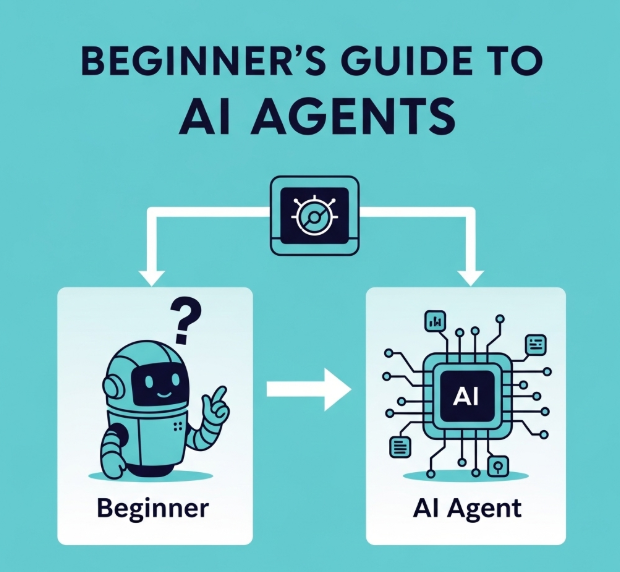
Benefits of Using AI Agents
The advantages of AI agents that enhance individual and business results include:
Efficiency and Productivity Gains
- 24/7 Availability: Since agents do not require sleep, they can provide support 24/7
- Multitasking: No distraction, no mistake
- Speed: AI agents enable quicker information processing and decision making compared to human actions
Cost Savings
- Labor Costs Minimized: Automating repeatable job functions leaves human resources to work on more beneficial assignments
- Error Minimization: Works more quickly and efficiently, also reduces the errors made by human-operation
- Energy Use: They can help cut down on energy use and can be tailored to energy level requirements
Personalization and User Experience
- Customized Suggestions: AI agents learn your interests and offer tailored tips
- Adaptive Interfaces: Will be able to change its behavior according to how you are using it and what you need from it
- Predictive Aid: AI agents can also deduce what you need and preemptively take action
Common Challenges and Limitations
While AI agents work in providing different advantages, they do have to face a few challenges which the users must have a fair idea about.
Technical Limitations
- Data Quality Dependence: AI agents are only as great as the data they’re trained on. When the data quality is bad, performance goes down
- Common Sense: Most of the agents are able to perform some specific tasks well, but they fail in scenarios that require common sense or general world knowledge
- Explainability: An AI agent lacks the capability to sometimes understand why it made the decision that it did, as in some critical applications
Ethical and Social Concerns
- Privacy: agent frequently need access to sensitive personal data, sparking concerns about privacy and data security
- Bias and Fairness: AI agents can learn and deploy the same biased patterns that are present in the data they trained on
- Job Displacement: AI agents with significant capabilities may trigger job displacement
Security Risks
- Adversarial Attacks: Malicious agents can manipulate AI agents to make incorrect inferences
- Data Breaches: AI systems containing personal information will be vulnerable to cyberattacks
- Malevolent Use: AI agents could be used by bad actors to disseminate misinformation or influence the attitude of a target population
The Future of AI Agents
There are a ton of cool developments happening in the rapidly evolving field of AI agents:
Emerging Trends
- Multimodal AI: Future agents will be able to take in multiple types of input at once (images, audio and video together)
- Collaborative AI: Teams of AI agents or multiple AI models will coordinate and cooperatively solve larger, more complex problems where each independent agent contributes its specialized skills
- Edge AI: AI agents will move on to your devices, instead of the need for a cloud connection, allowing for quicker response times and better user privacy
Industry Applications
- Healthcare: AI agents will help doctors diagnose, monitor patients from afar, and personalize treatment programs
- Education: Tutoring systems will evolve to respond to individual learning styles with each student’s personal progress and pace
- Environmental Management: AI agents will enable environmental management by optimizing energy usage, reducing waste, and fighting climate change
- Scientific Research: AI agents capable of life-long learning will crawl through the vast repository of research data to suggest hypotheses
What This Means for You
Think about your life facilitated by AI agents, as we look at them and gain experience.
- Career Planning: Think how AI could change your industry and the skills that you will learn to make a difference
- Digital Literacy: Even if you are never going to build software (code AI), but want to make well-informed decisions about technology, you need a fundamental grasp of what AI is and how it is changing what computers can do
- Stay Private: Be aware how AI agents use your data and what can you do to secure your privacy
How to Get Started with AI Agents Now
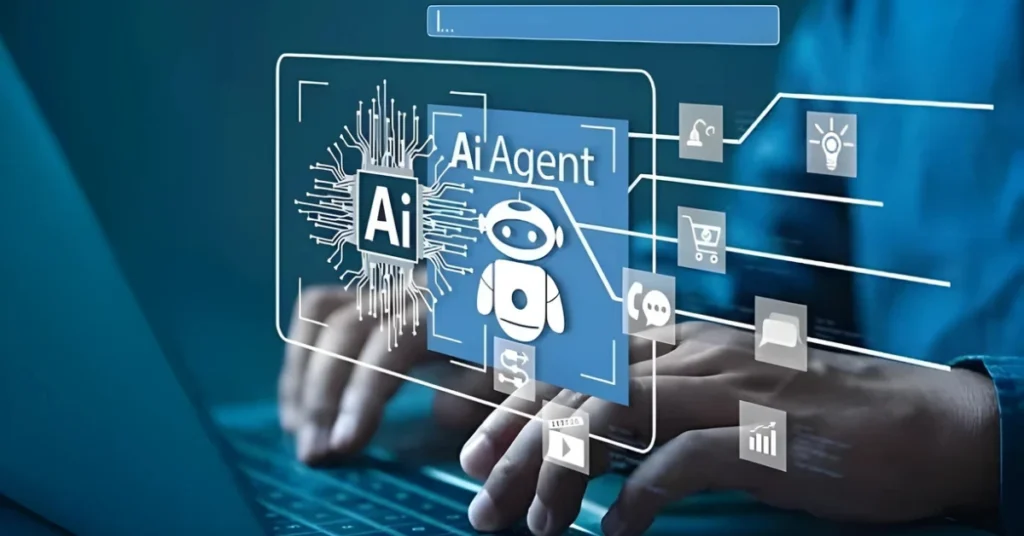
Looking to start putting AI agents in action into your everyday life? Here’s a practical roadmap:
Beginner-Friendly AI Agents
- Voice Assistants: Siri, Google Assistant and Alexa can handle setting reminders for you or engage with your smart home devices
- Writing Assistants: Tools like Grammarly and ChatGPT can help improve your writing or brainstorm new ideas
- Personal Finance: AI-driven apps like Mint or Personal Capital that monitor spending behaviors and offer financial tips
Intermediate Applications
- Productivity Tools: AI calendar apps, email managers & project planning tools
- Content Creation: AI is better than a decade ago and for content creation try with artificial intelligence content tools like creating images, music or digital video content
- Learning Platforms: Avail of AI-based projects supported by search tools and educational platforms made responsive to your way of learning
Best Practices for Success
- Start Small: Begin in simple applications and move to more complex uses
- Stay Informed: Continuously learn about the latest advancements in AI agent technology
- Verify Information: Never treat essential information offered by AI agents as gospel truth
- Protect Privacy: Choose carefully what personal data is shared with AI systems
How to Choose Wisely When It Comes to AI Agents
We are becoming increasingly reliant on AI agents, and we need to consider carefully which ones we use, and how.
Evaluation Criteria
Am I Thinking of an AI Agent?
- How does this help me with some type of real problem?
- How is it safe and more secure to protect privacy?
- Do I know how it thinks and what steps it will take next?
- What if it errs?
- Is a human needed?
Building Digital Wisdom
In fact, using AI agents is not about how to use them, it’s about when and why to apply them. Therefore, developing what experts call digital wisdom to exercise good judgment about how we use technology is critical.
Key Principles:
- Leverage AI agents to complement your abilities—not replace your thought
- Always keep on thinking critically, even when you have the help of AI
- Keep wondering how these things are executed
- Think about changing technology
Conclusion
Artificial intelligence agents are no longer just a dot on the far future horizon—they are here now, and available to assist millions of us to work smarter, live better, and reach our goals with great efficiency. Whether it is the voice assistant on our phone, or a recommendation engine within our favorite movie streaming service, intelligent systems are fundamentally changing how we engage with technology.
The quest to unravel the realm of AI agents is not for any one having a degree in computer science or those who possess technical knowledge. This path begins with curiosity and a certain openness to experimenting with them or using their potential, whether you use them and from which standpoint, as opportunities or responsibilities.
Remember, as you embark on an AI agent journey, the intent is NOT to turn all decision-making over to machines; rather, this should be a partnership; human creativity and judgment side-by-side with artificial intelligence capabilities. The best users of AI agents are those who continue to think critically even as they leverage the efficiencies and insights that the tools offer.
AI agents have a bright future with the advent of new features and use-cases. Start your journey today using basic things that can at least answer expected questions, so you are in a good place to profit from future, more advanced AI agents as they come online.
Regardless of whether you want to work more efficiently, make better-informed choices or just lighten your load by reducing the clutter in your daily life, AI agents can open a new realm of possibilities. It is not a question of if you will use AI agents—but what you actually pick and do with it to build the kind of life and work experience that you want.
Take the first step today. Use a voice assistant, give an AI writing tool a test-run, or check out a smart app suggestion. AI agents await a dialogue on the other side of one interaction and beyond, it can be as much as you want.





